May 30, 2014 •
Miami-Dade Ethics Commission Swears in Two New Commissioners
Former Doral mayor Juan Carlos Bermudez has been appointed as a commissioner to the Miami-Dade County Commission on Ethics and Public Trust. Bermudez is one of Doral’s founders and previously served as president of the Miami-Dade County League of Cities. […]
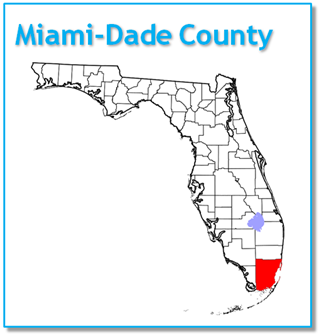 Former Doral mayor Juan Carlos Bermudez has been appointed as a commissioner to the Miami-Dade County Commission on Ethics and Public Trust. Bermudez is one of Doral’s founders and previously served as president of the Miami-Dade County League of Cities.
Former Doral mayor Juan Carlos Bermudez has been appointed as a commissioner to the Miami-Dade County Commission on Ethics and Public Trust. Bermudez is one of Doral’s founders and previously served as president of the Miami-Dade County League of Cities.
Marcia Narine, an assistant professor of law at St. Thomas University, was also sworn in as a new commissioner.
Commissioners are appointed to four-year terms.
May 30, 2014 •
GAO Report on Lobbying Compliance Released
The U.S. Government Accountability Office (GAO) released its audit of federal lobbying compliance for 2013. For the audit, the GAO reviewed a random sample of 104 quarterly disclosure reports filed for the third and fourth quarters of calendar year 2012 […]
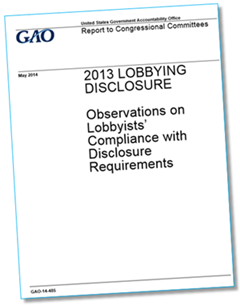 The U.S. Government Accountability Office (GAO) released its audit of federal lobbying compliance for 2013.
The U.S. Government Accountability Office (GAO) released its audit of federal lobbying compliance for 2013.
For the audit, the GAO reviewed a random sample of 104 quarterly disclosure reports filed for the third and fourth quarters of calendar year 2012 and the first and second quarters of calendar year 2013. Among its findings, the GAO concluded 96 percent of filers of lobbying disclosure reports were able to provide documentation to support reported income and expenses, 92 percent filed the required federal political campaign reports, and 67 percent of the reported income and expenses were properly rounded to the nearest $10,000. The audit also found at least 17 percent of all lobbying disclosure reports did not properly disclose formerly held covered positions.
The 56 page report, released on May 28, 2014, is titled “2013 Lobbying Disclosure Observations on Lobbyists’ Compliance with Disclosure Requirements.”
May 30, 2014 •
Arizona Legislature Adjourns Special Session
On May 29, the Arizona Legislature adjourned its special session sine die. Two bills were passed creating and funding the Department of Child Safety. Gov. Jan Brewer immediately signed both bills. Photo of the Arizona State Capitol by Jeff Dean […]
 On May 29, the Arizona Legislature adjourned its special session sine die. Two bills were passed creating and funding the Department of Child Safety. Gov. Jan Brewer immediately signed both bills.
On May 29, the Arizona Legislature adjourned its special session sine die. Two bills were passed creating and funding the Department of Child Safety. Gov. Jan Brewer immediately signed both bills.
Photo of the Arizona State Capitol by Jeff Dean on Wikimedia Commons.
May 30, 2014 •
Don’t Miss the AGRP Webinar on State Compliance
Join me on June 3 for “Mid-term Elections, High-stake Races: Get the Story on State Compliance,” a webinar hosted by the Association of Government Relations Professionals. I’ll be speaking about: How to utilize direct corporate dollars when contributing to state […]
Join me on June 3 for “Mid-term Elections, High-stake Races: Get the Story on State Compliance,” a webinar hosted by the Association of Government Relations Professionals.
I’ll be speaking about:
- How to utilize direct corporate dollars when contributing to state candidates.
- Knowing the ins and outs of using a federal PAC to contribute to state candidates
- McCutcheon vs. FEC: Understanding the impact on the states
- Becoming familiar with navigating complex state pay-to-play laws
- Discerning the elements of an effective compliance strategy: Pay-to-play and corporate contributions
The mid-term elections are around the corner. Make sure you have the information you need to stay compliant.
See you on June 3,
Elizabeth Bartz
President and CEO of State and Federal Communications, Inc.
May 30, 2014 •
News You Can Use Digest – May 30, 2014
Federal: Harry Reid’s Attacks on Koch Brothers Send GOP Donors into the Shadows Washington Post – Matea Gold | Published: 5/29/2014 Several prominent pro-Republican advocacy groups say they are benefiting from a burst of cash as some donors, fearful of […]

Federal:
Harry Reid’s Attacks on Koch Brothers Send GOP Donors into the Shadows
Washington Post – Matea Gold | Published: 5/29/2014
Several prominent pro-Republican advocacy groups say they are benefiting from a burst of cash as some donors, fearful of harsh public attacks such as those aimed at the billionaire Koch brothers by U.S. Senate Majority Leader Harry Reid, turn away from political committees required under federal law to reveal their contributors. Reid has escalated his criticisms of the Kochs and their influence within the GOP in recent months, lodging sharply personal attacks against the brothers, often from the Senate floor. “We’ve heard from donors that they don’t want to get ‘Koched,'” said one Republican operative who works with outside groups.
I.R.S. Delays New Rules on Taxation for Activists
New York Times – Nicholas Confessore | Published: 5/22/2014
The IRS is rewriting new rules intended to clarify how the agency defines political activity and how much nonprofit groups are allowed to spend on it and still keep their tax exempt status. The IRS will delay a public hearing it planned to hold this summer until the controversial regulations are revised. The agency said it made the decision after receiving 150,000 comments about the changes, the biggest public response to any proposed rule in its history. The delay means new rules will not be in place before Election Day.
Patton Boggs Agrees to Merger with Squire Sanders
Washington Post – Catherine Ho and Holly Yeager | Published: 5/23/2014
Patton Boggs, a Washington, D.C. lobbying and legal powerhouse for decades, is merging with a larger firm, Squire Sanders, in a move that saves Patton Boggs from drift or dissolution. The new firm will be named Squire Patton Boggs. The merger is expected to take effect by June 1. The end of Patton Boggs as a standalone firm is a tale of a changing industry, where a firm’s ability to influence a few key powerbrokers is giving way to the need to sway larger groups of lawmakers and the public as a whole.
RNC Files Suit to Raise Unlimited Cash for Elections
San Gabriel Valley News; Associated Press – | Published: 5/22/2014
The Republican National Committee sued for the right to raise unlimited funds for independent expenditures that advocate for a candidate’s election. The suit seeks to eliminate an annual $32,400 per person limit on contributions to the party, making its independent spending similar that of a super PAC. The committee did not challenge limits on contributions made directly to campaigns.
From the States and Municipalities:
Arkansas – Arkansas Ethics Panel Issues Opinion on Electronic Campaign Contributions
The Times Record; Arkansas News Bureau – | Published: 5/23/2014
The Arkansas Ethics Commission said a national organization that accepts campaign contributions electronically does not have to require Arkansas donors to submit personal information each time they make a donation if the information is already recorded. The commission issued an advisory opinion at the request of ActBlue, a PAC that raises money for Democratic candidates across the country.
California – Chiu Lobbying Legislation Heads to Full Board of Supervisors Next Month
San Francisco Chronicle – Marisa Logos | Published: 5/27/2014
Proposed changes to San Francisco’s lobbying ordinance seek to close loopholes that critics say have allowed some of the city’s most prolific lobbyists to avoid registering. Current law exempts licensed attorneys from registering as lobbyists, even if they are not actually acting as a lawyer. The legislation also changes the definition of a lobbyist, basing it on the number of times a person contacts city officials instead of how much he or she is paid for lobbying activities.
California – Guiding Voters to Candidates with the Right Wallets
Los Angeles Times – Evan Halper | Published: 5/27/2014
Like so many other Silicon Valley startups, a project from two Stanford University professors, www.crowdpac.com, is rooted in an algorithm. This one is fueled by campaign money. The academics view campaign disclosure reports as a treasure trove of data that can be used to connect neophyte politicos with like-minded candidates. Crowdpac’s motto: “It turns out the best guide to what a politician will do is not what comes out of their mouth, but what goes into their wallet.”
Maine – Maine Ethics Panel Imposes Record Fine on National Organization for Marriage
Portland Press Herald – Steve Mistler | Published: 5/28/2014
The Maine Commission on Governmental Ethics and Election Practices fined the National Organization for Marriage (NOM) more than $50,000 and ordered it to file a report that would reveal the donors behind the group’s 2009 effort to repeal the state’s gay marriage law, a decision that could affect how nonprofit organizations attempt to influence elections. The commission ruled NOM failed to properly register as a ballot question committee and file campaign finance reports in the referendum that struck down same-sex marriage before it was legalized by voters in 2012.
Minnesota – Ritchie Cuts out Immunity Cards for Legislators
Minneapolis Star Tribune – Abby Simons | Published: 5/22/2014
Secretary of State Mark Ritchie will no longer distribute “Get Out of Jail Free” cards to Minnesota lawmakers. The decision brings an end to the wallet-sized cards that say lawmakers “in all cases except treason, felony and breach of the peace, shall be privileged from arrest” while the Legislature is in session. Historically, the cards were issued to keep adverse interests from arresting lawmakers to prevent them from voting, but have raised concerns among some who fear they literally put legislators above the law, including getting them out of drunken driving or other arrests.
Mississippi – For Tea Party, Senate Race in Mississippi Is the Last Chance to Oust an Incumbent
New York Times – Jonathan Weisman | Published: 5/28/2014
Mississippi politics has always had a rough edge under the veneer of Southern gentility, but the race for the U.S. Senate between incumbent Thad Cochran and state Sen. Chris McDaniel has reached another level. The race represents the last chance for tea party activists to topple an incumbent senator, and it appears that little is off limits in the campaign.
New Jersey – A Limit to Pension Investing Oversight as Political Donations from Executives Can Go Unchecked
Bergen Record – Melissa Hayes and John Reitmeyer | Published: 5/27/2014
New Jersey’s “pay-to-play” law makes it clear that executives and their employees working on the state’s pension fund investments cannot donate to candidates and political committees. But those venture capital firms and hedge funds often take the state pension dollars and invest them in other companies whose executives do not have to disclose their campaign contributions. The complex nature of those investments, the inability of the law to cover all their financial relationships, and the lack of any public database like the one for state contractors make tracking political connections difficult.
New York – New York Elections Board: $150,000 campaign donation limit on individuals won’t be enforced
The Tribune – Michael Virtanen (Associated Press) | Published: 5/27/2014
The New York Board of Elections ruled the state’s $150,000 annual limit on aggregate campaign donations by individuals will no longer be enforced. The contributions would be restricted only by how much a politician, party, or group can receive under various limits set in election law. For example, a statewide candidate can accept no more than $41,100 from a single donor. The board agreed the $150,000 limit is unenforceable following recent court rulings.
Pennsylvania – How Philly’s Most Powerful Ed Reform Group Broke the Law
Philadelphia City Paper – Daniel Denvir | Published: 5/23/2014
The city ethics board levied a fine of $1,500 against the Philadelphia School Partnership for failing to register as a lobbying principal and not filing required disclosure reports. The partnership, a local nonprofit raising millions of dollars in a bid to improve public, private, and charter schools, said it was initially unaware that the city’s definition of lobbying was broader than those used by the state and federal governments.
Virginia – Ethics Law Addresses Virginia Officials’ Financial Dealings, But Database Is a Tall Order
Washington Post – Jenna Portnoy | Published: 5/26/2014
Under a new law, the public should be able to scrutinize a wide variety of Virginia officeholders’ financial data and gifts they receive with a quick check online. But unanswered questions about how the electronic clearinghouse will be set up could make it harder, not easier, to see the information. Officials are struggling with the difficult and potentially expensive reality of carrying out the law. As a result, they are considering a simpler, less searchable system that would make it more difficult to scrutinize the records.
Virginia – McAuliffe Vetoes Ethics Bill after Amendments Rejected
Richmond Times Dispatch – Olympia Meoli | Published: 5/23/2014
Virginia Gov. Terry McAuliffe vetoed identical ethics reform bills limiting certain gifts to him after the General Assembly rejected amendments he proposed to place that limit on lawmakers. The bills aimed to ban the governor from soliciting or accepting gifts worth more than $50 from those seeking grants or no-interest loans from a state economic development fund.
 State and Federal Communications produces a weekly summary of national news, offering more than 80 articles per week focused on ethics, lobbying, and campaign finance.
State and Federal Communications produces a weekly summary of national news, offering more than 80 articles per week focused on ethics, lobbying, and campaign finance.
News You Can Use is a news service provided at no charge only to clients of our online Executive Source Guides, or ALERTS™ consulting clients.
The New York State Board of Elections will no longer enforce the $150,000 yearly aggregate limit on political contributions from individuals. In its May 2014 meeting, the board determined the limit can no longer be enforced in light of recent […]
 The New York State Board of Elections will no longer enforce the $150,000 yearly aggregate limit on political contributions from individuals. In its May 2014 meeting, the board determined the limit can no longer be enforced in light of recent federal court decisions.
The New York State Board of Elections will no longer enforce the $150,000 yearly aggregate limit on political contributions from individuals. In its May 2014 meeting, the board determined the limit can no longer be enforced in light of recent federal court decisions.
New York campaign finance law imposes a similar aggregate limit of $5,000 on a corporation’s yearly contributions. The board made no ruling with regard to the corporate limit; however that limit is currently being challenged in federal court.
May 28, 2014 •
Wisconsin GAB Drafts New Lobbyist Contribution Guidelines
The Government Accountability Board (GAB) is seeking comment on new guidelines for lobbyist campaign contributions. Following changes to campaign fundraising rules pursuant to 2013 Wisconsin Act 153, GAB concluded a lobbyist may deliver or convey a campaign contribution on behalf […]
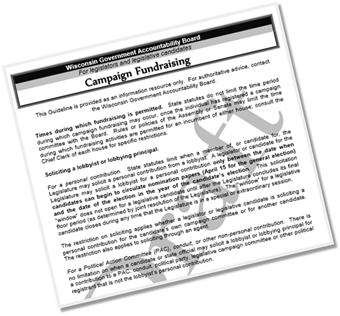 The Government Accountability Board (GAB) is seeking comment on new guidelines for lobbyist campaign contributions. Following changes to campaign fundraising rules pursuant to 2013 Wisconsin Act 153, GAB concluded a lobbyist may deliver or convey a campaign contribution on behalf of a political action committee, conduit, or other person to a candidate for any office at any time.
The Government Accountability Board (GAB) is seeking comment on new guidelines for lobbyist campaign contributions. Following changes to campaign fundraising rules pursuant to 2013 Wisconsin Act 153, GAB concluded a lobbyist may deliver or convey a campaign contribution on behalf of a political action committee, conduit, or other person to a candidate for any office at any time.
The draft changes to GAB guidelines 1249 and 1250 are available here. Comments should be sent to Division Administrator Jonathan Becker at jonathan.becker@wi.gov or (608) 267-0647 by June 2, 2014.
May 27, 2014 •
Federal Widely Attended Gathering Gift Ceiling is Now $375
In a May 23 legal advisory to federal designated agency ethics officials, the Office of Government Ethics announced it had raised the widely attended gathering gift exception ceiling for nonsponsor gifts of free attendance from $350 to $375. This revision […]
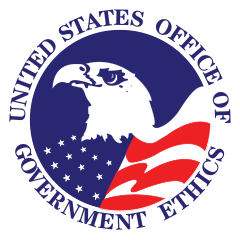 In a May 23 legal advisory to federal designated agency ethics officials, the Office of Government Ethics announced it had raised the widely attended gathering gift exception ceiling for nonsponsor gifts of free attendance from $350 to $375. This revision of 5 C.F.R. § 2635.204(g)(2) became effective May 19, 2014, when it was published in the Federal Register.
In a May 23 legal advisory to federal designated agency ethics officials, the Office of Government Ethics announced it had raised the widely attended gathering gift exception ceiling for nonsponsor gifts of free attendance from $350 to $375. This revision of 5 C.F.R. § 2635.204(g)(2) became effective May 19, 2014, when it was published in the Federal Register.
The Ethics Commission has issued an opinion for organizations accepting campaign contributions electronically. Advisory Opinion 2014-EC-002 permits organizations to accept electronic donations without requiring the donor to submit personal information if the information is already recorded. The commission issued the […]
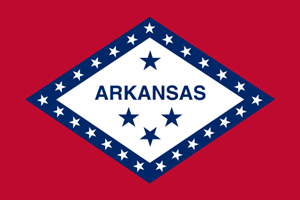 The Ethics Commission has issued an opinion for organizations accepting campaign contributions electronically. Advisory Opinion 2014-EC-002 permits organizations to accept electronic donations without requiring the donor to submit personal information if the information is already recorded.
The Ethics Commission has issued an opinion for organizations accepting campaign contributions electronically. Advisory Opinion 2014-EC-002 permits organizations to accept electronic donations without requiring the donor to submit personal information if the information is already recorded.
The commission issued the opinion at the request of ActBlue, a political action committee for Democratic candidates across the country. The ActBlue website requires personal information of the donor to be submitted, but not resubmitted for subsequent contributions.
The committee asked if this practice complied with a statutory requirement for electronic records to include the donor’s name, address, place of business, employer, and occupation “at the time of making the contribution.” The commission concluded even if some of the required donor information was provided prior to a contribution, the record would comply with the statute.
May 27, 2014 •
San Francisco, California Board to Decide Lobbying Ordinance
The Board of Supervisors will soon vote on ethics legislation introduced last year by City Attorney Dennis Herrera and Board of Supervisors President David Chiu. Ordinance 130374 would amend the Campaign and Governmental Conduct Code to expand the definition of […]
 The Board of Supervisors will soon vote on ethics legislation introduced last year by City Attorney Dennis Herrera and Board of Supervisors President David Chiu. Ordinance 130374 would amend the Campaign and Governmental Conduct Code to expand the definition of lobbyist and require random audits of lobbying reports.
The Board of Supervisors will soon vote on ethics legislation introduced last year by City Attorney Dennis Herrera and Board of Supervisors President David Chiu. Ordinance 130374 would amend the Campaign and Governmental Conduct Code to expand the definition of lobbyist and require random audits of lobbying reports.
The lobbying exemption for contractors and their attorneys would be limited to in-house officers and employees. Meeting the definition of a lobbyist would depend on the number of contacts with officials rather than the previous measure of compensation. Outside consultants communicating with public officials regarding contract bidding and negotiating would be subject to the registration and reporting requirements of lobbying.
The ordinance will likely be decided at the board meeting on June 10, 2014.
Today, the Republican National Committee (RNC) filed a lawsuit in the United States District Court District of Columbia asking that political parties be able to collect unlimited political contributions for independent expenditures. In RNC v. Federal Election Commission (FEC), the […]
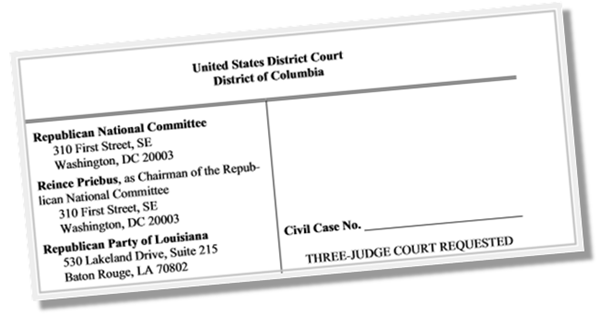
Today, the Republican National Committee (RNC) filed a lawsuit in the United States District Court District of Columbia asking that political parties be able to collect unlimited political contributions for independent expenditures.
In RNC v. Federal Election Commission (FEC), the RNC argues the First Amendment protects the right of political parties to engage in unlimited independent expenditures and accept unlimited contributions to accounts maintained by those parties when designated solely for independent expenditures.
The RNC wants to conduct this independent activity in select U.S. Senate and House Races in 2014 followed in 2016 in the race for the President.
On May 21, a similar lawsuit was brought against the FEC by the Libertarian National Congressional Committee asking for comparable relief.
Gov. Terry McAuliffe has vetoed two bills unanimously passed by the legislature designed to restrict his ability to solicit gifts and campaign contributions. The identical bills would have prevented the governor, his campaign committee, and any PAC established on his […]
 Gov. Terry McAuliffe has vetoed two bills unanimously passed by the legislature designed to restrict his ability to solicit gifts and campaign contributions. The identical bills would have prevented the governor, his campaign committee, and any PAC established on his behalf from soliciting or accepting gifts or contributions exceeding $50 from any person or entity seeking loans or grants from the Governor’s Development Opportunity Fund.
Gov. Terry McAuliffe has vetoed two bills unanimously passed by the legislature designed to restrict his ability to solicit gifts and campaign contributions. The identical bills would have prevented the governor, his campaign committee, and any PAC established on his behalf from soliciting or accepting gifts or contributions exceeding $50 from any person or entity seeking loans or grants from the Governor’s Development Opportunity Fund.
The governor sent the bills back with amendments extending the rules to members of the General Assembly, but both houses rejected the amendments to their bills.
The governor argued the restrictions should extend to the General Assembly because, although he awards loans and grants from the fund, the money is appropriated by the General Assembly. Legislators responded it would be impractical to include them in the bills, because they are not privy to such high-level economic development talks or information about the parties involved.
Photo of Gov. Terry McAuliffe courtesy of Kate Wellington on Wikimedia Commons.
May 23, 2014 •
GAO Issues Report on Debarment Programs
On May 21, the U.S Government Accountability Office (GAO) issued a report describing the steps taken to improve the suspension and debarment programs of some agencies with federal contracts and grants. The report, prepared for the House of Representatives Committee […]
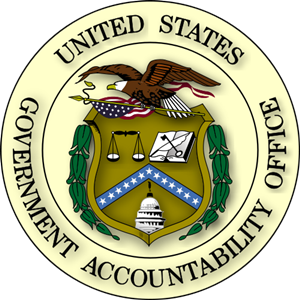 On May 21, the U.S Government Accountability Office (GAO) issued a report describing the steps taken to improve the suspension and debarment programs of some agencies with federal contracts and grants. The report, prepared for the House of Representatives Committee on Oversight and Government Reform, found “the number of suspension and debarment actions government-wide has more than doubled from 1,836 in fiscal year 2009 to 4,812 in fiscal year 2013.”
On May 21, the U.S Government Accountability Office (GAO) issued a report describing the steps taken to improve the suspension and debarment programs of some agencies with federal contracts and grants. The report, prepared for the House of Representatives Committee on Oversight and Government Reform, found “the number of suspension and debarment actions government-wide has more than doubled from 1,836 in fiscal year 2009 to 4,812 in fiscal year 2013.”
In 2011, the GAO had recommended strengthening federal agency suspension programs by implementing “dedicated staff, detailed policies and procedures, and an active referral process.” The six agencies reviewed for the report had all carried out some of the previous recommendations. The GAO did not make any new recommendations in its report. The report can be found here.
May 23, 2014 •
News You Can Use Digest – May 23, 2014
National: Glass Ceilings in Statehouses in the Northeast New York Times – Jonathan Martin | Published: 5/18/2014 The Democratic Party has yet to elect a female governor in Pennsylvania, New Jersey, New York, Rhode Island, or Massachusetts. Even this year, […]

National:
Glass Ceilings in Statehouses in the Northeast
New York Times – Jonathan Martin | Published: 5/18/2014
The Democratic Party has yet to elect a female governor in Pennsylvania, New Jersey, New York, Rhode Island, or Massachusetts. Even this year, with women running for governor in three of those states, it is uncertain that any of them will break the pattern. It is no quirk of history, according to a few dozen politicians, scholars, and strategists who have examined or experienced firsthand the difficulties women have had in seeking to become chief executives in some of the flagship states of blue America.
From the States and Municipalities:
Connecticut – Judge Orders Settlement Try in DGA Campaign Case
Connecticut Mirror – Mark Pazniokas | Published: 5/21/2014
U.S. District Court Judge Janet Hall ordered settlement talks to begin in a case in which the Democratic Governors Association (DGA) claims the State Elections Enforcement Commission and Connecticut campaign laws restrict its First Amendment right to spend money on behalf of Gov. Dannel Malloy in the coming election. Hall sharply questioned lawyers for both sides in open court, probing the DGA’s legal standing to challenge a statute it is yet to be accused of violating, and testing whether the state law comports with recent court rulings minimizing restrictions on campaign contributions.
Delaware – Markell Ties Benefit from Collections Contracts
Delmarva Daily Times – Jonathan Starkey (Wilmington News Journal) | Published: 5/19/2014
Gov. Jack Markell’s administration has paid millions of dollars to law firms tied to supporters and former staff members that were hired to help collect money from out-of-state businesses incorporated in Delaware. Nothing about the relationships and contracts is illegal. But the contracts raise questions about how Markell, who came into the governor’s office critical of backroom deals that benefit insiders, runs the program that collects so much state revenue. James Browning of Common Cause said the state should require better lobbying disclosures for those seeking public business.
Georgia – Ethics Commission Whistleblower Talks About Trial
WXIA – Catherine Beck | Published: 5/21/2014
In an interview, former state ethics commission Executive Secretary Stacey Kalberman recounted the turbulent last three years she has faced. In dealing with an ethics case against Georgia Gov. Nathan Deal, Kalberman lost her job, her professional reputation, and the Atlanta community she had lived in for more than 25 years. But she won from a jury what she needed the most: vindication.
Illinois – Watchdog Wants Stricter Cook County Lobbying Rules
Chicago Tribune – Hal Dardick | Published: 5/19/2014
Cook County Inspector General Patrick Blanchard issued a report that calls for stricter rules after finding “rogue lobbyists” are ignoring requirements to register or report their activities. He said people selling products to the government escape from all lobbying requirements under a loophole in the county ordinance. County Clerk David Orr, who introduced the county’s lobbyist reporting requirements, said he was open to the reforms that Blanchard proposed.
Indiana – State Giving $345K to Eric Turner Company Project
Belleville News Democrat – Tom LoBianco (Associated Press) | Published: 5/20/2014
The Indiana Economic Development Corp. awarded Mainstreet Property Group $345,000 for the construction of a nursing home that is expected to net House Speaker Pro Tem Eric Turner $1.8 million. It was one of many Mainstreet projects that Turner helped save when he defeated legislation that would have banned the construction of new nursing homes. Turner owns 50 percent of a company which owns 76 percent of Mainstreet.
Louisiana – Federal Judge: Ethics gag rule is unconstitutional
New Orleans Advocate – Sara Pagones and Faimon Roberts III | Published: 5/16/2014
A federal judge granted Terry and Laura King’s request to strike down a state law under which the couple was charged with a crime for allegedly making public statements about an ethics complaint they filed against St. Tammany Parish Coroner Peter Galvan. The Kings filed a lawsuit challenging the constitutionality of the law, saying it violates citizens’ rights to freedom of speech. U.S. District Court Judge Martin Feldman agreed that the section of the law used to prosecute the Kings is too broad.
Maine – National Anti-Same-Sex Marriage Group Could Be Fined for Role in 2009 Campaign
Portland Press Herald – Eric Russell | Published: 5/19/2014
A national group that helped defeat a same-sex marriage law in Maine could face more than $50,000 in fines for violating the state’s campaign finance laws. The state ethics commission said its investigators found the National Organization for Marriage (NOM) should be fined for failing to register as a ballot question committee and not filing reports. NOM was the primary donor when it gave nearly $2 million to Stand for Marriage Maine, a PAC, to help defeat the law in a 2009 referendum. State law requires groups to register if they raise or spend more than $5,000 to influence a state ballot question.
Massachusetts – Mayor Walsh Received $1.4M in Gifts for Gala, Transition
Boston Globe – Andrew Ryan | Published: 5/19/2014
Boston Mayor Martin Walsh received $1.4 million in private donations for his inauguration and transition, with most of the contributions coming from corporations, developers, lobbyists, and others who do business with the city. Walsh used no tax dollars for the January inauguration, and he barred money from PACS and organized labor, although unions hosted a private reception for the new mayor. The administration suggested a cap of $25,000 for donors and voluntarily disclosed all contributions and expenditures. Walsh said it did not pose a conflict to accept money from companies with interests before the city.
Minnesota – Federal Court: Minnesota must lift limit on political donations
Minneapolis Star Tribune – Rachel Stassen-Berger | Published: 5/20/2014
Minnesota’s law limiting the amount of money candidates can take from lobbyists, PACs, and big donors is on hold after a ruling by a federal judge. U.S. District Court Judge Donovan Frank suspended the law while a court challenge plays out. The statute in question says candidates can only accept 20 percent of their contributions from certain types of donors and then must abide by lower limits after that.
New Jersey – National Group Gives NJ Contractors a New Way to Influence Elections
Newark Star Ledger – Matt Friedman | Published: 5/18/2014
Contributions to GOPAC, a Washington-based nonprofit political advocacy group, reveal how such organizations allow contractors to get around state and local laws designed to keep them from making big campaign donations in New Jersey. Some of the candidates and committees were restricted from taking major donations directly from the contractors because of New Jersey’s web of “pay-to-play” laws aimed at keeping political money from influencing the awarding of contracts. But the contractors are free to donate to GOPAC, which is allowed to give money to any candidate.
North Carolina – NC Legislature Adopts New Rules on Protests
Raleigh News & Observer – Craig Jarvis | Published: 5/15/2014
North Carolina lawmakers adopted new rules governing protests at the Legislative Building. The move was prompted by legal concerns over the guidelines cited by judges hearing the cases of some of the more than 900 people who were arrested in last year’s “Moral Mondays” demonstrations at the General Assembly. But the process, rushed through on the second day of session in advance of the anticipated first round of protests this year, drew criticism from Democratic legislators.
Oklahoma – Oklahoma Gov. Mary Fallin Signs Bill to Change Local Campaign Finance Reporting Law
The Oklahoman – Rick Green | Published: 5/20/2014
A bill signed into law by Oklahoma Gov. Mary Fallin imposes a new disclosure requirement for groups that make independent expenditures to local campaigns. These groups will be required to identify donors who contribute more than $50. The law also designates the state Ethics Commission as the body to enforce local campaign finance statutes.
Vermont – Donor Rules Same for All VT Candidates
Burlington Free Press – Nancy Remsen | Published: 5/19/2014
Vermont Attorney General William Sorrell issued guidance saying the state would not enforce different contribution limits for candidates who run in both a primary and general election and candidates running for the same office who have only one election. All candidates will now be allowed to accept $2,000 per donor, even if they do not have a primary. This policy applies through December 31, 2014, after which new donations limits take effect for the next election cycle.
Wisconsin – Lobbyists to Be Allowed to Make Campaign Donations during Legislative Session
Wisconsin State Journal – Mary Spicuzza | Published: 5/22/2014
The Wisconsin Government Accountability Board said lobbyists can pass along campaign contributions made by others, such as PACs, at any time of the year. A new campaign finance law raised questions about what the rules for lobbyists were. The board decided that timing limitations for lobbyist donations to candidates apply only to personal contributions, and not those they are delivering on behalf of others.
 State and Federal Communications produces a weekly summary of national news, offering more than 80 articles per week focused on ethics, lobbying, and campaign finance.
State and Federal Communications produces a weekly summary of national news, offering more than 80 articles per week focused on ethics, lobbying, and campaign finance.
News You Can Use is a news service provided at no charge only to clients of our online Executive Source Guides, or ALERTS™ consulting clients.
State and Federal Communications, Inc. provides research and consulting services for government relations professionals on lobbying laws, procurement lobbying laws, political contribution laws in the United States and Canada. Learn more by visiting stateandfed.com.

